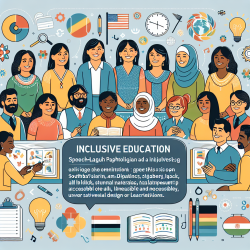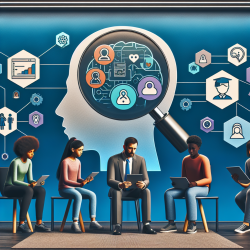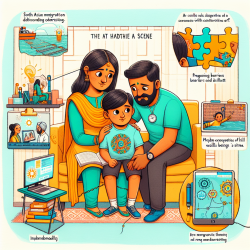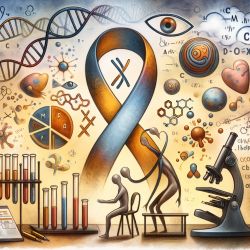Inclusive education is a growing priority in Canadian schools, where students with disabilities are educated alongside their peers in general education classrooms. Universal Design for Learning (UDL) is a framework that supports inclusion and offers a common foundation for educators and Speech-Language Pathologists (SLPs) to collaborate effectively. The study "Speech-Language Pathologists Role in Inclusive Education: A Survey of Clinicians Perceptions of Universal Design for Learning" by Campbell et al. (2016) provides valuable insights into how SLPs perceive their knowledge and ability to implement UDL.
According to the survey, a majority of SLPs are familiar with UDL but face several challenges in its implementation. Key barriers include time constraints, limited opportunities for collaboration with school personnel, and insufficient administrative support. These findings highlight the need for professional development and systemic changes to support SLPs in their roles.
Here are some actionable steps SLPs can take to improve their skills and effectively implement UDL:
- Build Foundational Knowledge: SLPs should seek opportunities to deepen their understanding of UDL principles. Several free online resources, such as those provided by the Center for Applied Special Technology (CAST) and the National Center on Universal Design for Learning, offer comprehensive information and training modules.
- Collaborate with Educators: Effective UDL implementation requires collaboration between SLPs and educators. Joint professional development sessions can help both parties understand each other's roles and work together more efficiently.
- Advocate for Systemic Changes: Addressing barriers such as time constraints and administrative support requires systemic changes. SLPs can advocate for a workload approach, which considers all activities performed by SLPs, not just direct service delivery.
- Participate in Professional Learning Communities: Joining virtual professional learning communities, such as UDL Connect, can provide SLPs with a platform to share experiences, seek advice, and stay updated on best practices.
By taking these steps, SLPs can enhance their ability to implement UDL, thereby contributing to more inclusive and supportive educational environments for all students.
To read the original research paper, please follow this link: Speech-Language Pathologists Role in Inclusive Education: A Survey of Clinicians Perceptions of Universal Design for Learning.










